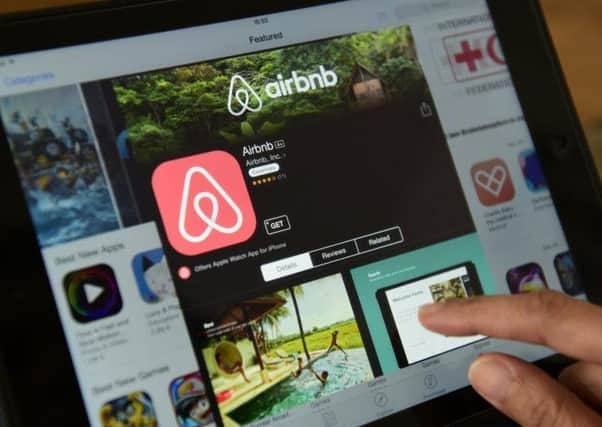Airbnb: Kezia Dugdale is right - we should be regulated


There are already a number of regulations and taxes Airbnb hosts are subject to, like income and council taxes. Cities also face their own individual challenges in needs, such as overtourism and housing shortages, and we are keen to help. The challenge is to craft additional regulations that work for everyone. That includes guests who want authentic experiences in local homes; newly-thriving local businesses outside hotel and tourist districts; and hosts – local families who welcome guests into their homes and keep up to 97 per cent of the fee they charge, which almost half (44 per cent) describe as an economic lifeline.
Airbnb began when two students couldn’t afford their rent. When hotels were over capacity for a conference, they inflated air beds and welcomed guests into their home. Ten years later, more than two million people a night are staying in homes on Airbnb across the world. In Scotland, this activity is boosting the economy by almost £1.5m a day.
Advertisement
Hide AdAdvertisement
Hide AdA typical host in Edinburgh earns £4,00 a year by sharing their space for four nights a month. They keep the vast majority of the price they charge to rent their space and use the additional income to help with mortgage payments, household expenses and new business ventures.


They are not typically businesses or professionals, and treating them as such won’t work. For guests, they get the opportunity to stay outside tourist hotspots, and shop, eat and drink in local shops, bars and restaurants they might otherwise have missed. The vast majority of guests (79 per cent) say they choose Airbnb to experience life like a local. Generating new revenue streams for Scots is good news for everyone, and regulation needs to keep pace.
Airbnb has already worked with more than 500 governments around the world on clear home sharing rules and progressive tax measures to help spread the benefits of home sharing to everyone.
And just last week, we announced we will automatically collect and remit tourist tax for hosts in 23,000 French cities.
Advertisement
Hide AdAdvertisement
Hide AdWe also want to work with Scotland on smart regulations. We’ve put forward proposals that would limit families in the Old Town to sharing entire homes for 90 nights a year with exemptions for peak seasons in August and December, which are crucial for the Scottish economy and where existing accommodation options aren’t able to meet demand. Should Edinburgh wish to introduce a tourist tax, we’ll gladly support that.
The Airbnb community is made up of families who care deeply about their communities. We want to support them. But talk of “Airbnb clampdowns” is unhelpful.
What’s needed are new and proportionate regulations for an innovation that did not exist ten years ago, balancing the needs of local families and businesses with the unique needs of Scotland.
Airbnb has grown because it reflects the way people live, work and travel in the 21st century. Any new regulations in Scotland need to do the same.
Patrick Robinson is Airbnb Director of Public Policy, EMEA